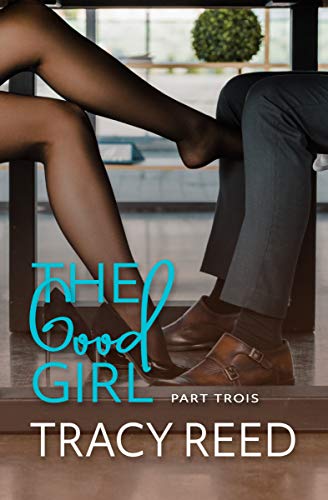What You See . . .
October 30, 2022 by Dianna Sinovic in category Quill and Moss by Dianna Sinovic tagged as Dianna Sinovic, fiction, flash Fiction, Short Stories, Twist in the tale

After three sleepless nights, Damian had the bad luck to draw the early shift at Fitzy’s Diner. His eyes were slits as he broke egg after egg for omelets and poured round after round of batter for pancakes.
“Hurry it up, Dame!” Fitzy shouted from the kitchen doorway. “This ain’t no five-star dive.”
“Shove it,” Damian wanted to shout back. But he had rent and a late car payment earmarked for his next paycheck. He was six months clean, and Fitzy, with his sharp eyes and weasel nose, was looking for any excuse to send him back to the streets—or that’s the way it seemed to Damian, who could never move fast enough to please the boss.
When Fitzy slipped back through the swinging doors, Damian turned his focus to the griddle, scraping it for the next omelet. That’s when the spiders crawled out from behind the stovetop, into the pool of melted butter, and skated across the hot surface. Five of them—big, hairy, and long-legged, with eyes that stared him down.
“Jesus,” Damian half-yelped. How is this possible, he thought. He hated spiders. Too many legs.
When he reached for the whisk, his hand brushed something moving.
“Aaahh!” This time he yelled. More spiders covered the egg carton and spilled onto the work table.
No, no, no, his mind screamed. Could the hallucinations return even if he wasn’t using?
“Dame?” It was Helena, on the morning wait staff. She stood in the doorway, concern etched on her face. “You okay?”
Quickly, Damian wiped the sheen of sweat from his face. “Yeah. Just burned myself,” he lied. “Stupid of me.”
She smiled and shook her head. “Be careful. We can’t lose you.” And she was gone, back out to the front counter.
With shaking hands, Damian surveyed the griddle and work tables. The spiders had multiplied, filling the entire stovetop. These couldn’t be real spiders—real arachnids couldn’t survive that heat, could they? Yet he could hear the minute scrape of their feet as they moved.
He shut his eyes tightly, willing the hallucination to cease. I can’t lose this job.
The paranoia that had been his every waking moment—and often every moment of attempted sleep—had finally driven him to rehab. He could no longer live constantly looking over his shoulder. His counselor had assured him the effects of the inhalants he’d once craved had subsided for good—but maybe they’d been wrong.
The swinging doors squeaked, and he opened his eyes to Fitzy’s bark. “Where’s the short stack and ranchero special?”
The spiders now covered the mixing bowl with its batter and the bacon Damian had planned to fry up next. He shuddered at the expanding multitude.
Fitzy grabbed his shoulder, hard, and jerked. “Get moving or you’ll be moving on out of here.”
The spiders descended from the bank of overhead lights and dropped onto Fitzy’s head, swarming down his neck and onto his bare arms. Red welts from their bites began to swell.
After a moment of indecision, Damian removed his apron, hung it on its wall peg, and left the kitchen to Fitzy’s screams.
1 0 Read moreWingspread
April 30, 2022 by Dianna Sinovic in category Quill and Moss by Dianna Sinovic tagged as family stories, flash Fiction, Short Stories, sisters
Darci waved the embossed certificate under her sister’s nose. “Don’t you realize it’s a red-letter day? I’m not letting you mess this up.”
Grabbing at the cream-colored document, Kara tried to take it from Darci, and in the brief tug, the paper ripped in two.
“No!” Darci shouted.
Startled at her sister’s vehemence, Kara dropped her half, and Darci snatched it.
“I didn’t mean for it to tear.” Kara regretted that she’d reacted in anger. “But I still don’t like it.”
Darci breathed out slowly. She set the two torn halves on the coffee table, fetched the roll of clear tape, and knelt to patch the rift, all the time ignoring Kara. When she was done, she sat back on her heels and held the certificate up to inspect it.
“It’s still ruined, but that doesn’t change the fact that I’m going. You can’t stop me.”
No, she couldn’t, Kara knew. “I just wish you would reconsider.”
“Never,” Darci said, underlining the word with a scowl.
“Ever since Mom died, you’ve been . . . ” Kara tried to put words to her observation. “It’s almost like you have a death wish.”
With her scowl deepening, Darci stood up. She hugged the patched paper, wrapping her arms tightly across it. “Mom would have wanted me to do this. She trusted me—she trusted both of us to do what we were meant to do. For me, this is it.”
Kara pushed away the memories of those last days of their mother’s life, the IV drip of pain medicine, the odor of bleach, the gaunt frame of the woman who’d brought them into the world. What was it Kara was meant to do? She still had no idea at twenty-five, but Darci was different. Three years younger, she burned with a mission.
And to be accepted into the Gloved Force was an achievement few people earned. Kara had been astonished when Darci broke the news. Her sister, a Glover. To learn those secrets . . .
“It’s dangerous.” Kara tried not to sound pathetic. “You’re so young.”
Darci’s face softened. “Life is dangerous. Every single day. You never know which hour will hold your last breath.” She moved across the room to sit next to Kara. Laying the certificate to one side, she picked up Kara’s hand and held it between her own. “If I can do this thing, and I know that I will, and I should die as a consequence, I’ll still be fulfilled.”
Kara saw the steeliness in her sister’s eyes. When did my kid sister grow up? “When do you leave?”
Darci smiled then, accepting Kara’s olive branch. “Monday.”
In five days.
“Let me give you something.” Kara brought back from her bedroom a maroon ring box. She ran a finger over the crushed velvet. “This was Mom’s.”
Darci opened the lid and sucked in a gasp. A slim gold band inlaid with three red sparks.
“Rubies,” Kara said. “‘One for each of us,’ she told me.”
Her sister removed the ring and held it to the light of a lamp, her eyes glistening.
“Mom said to give this to you when you were ready to fledge,” Kara said. “Go fly.”
Some of Dianna’s Books
Dianna Sinovic, Featured Author
November 7, 2021 by Dianna Sinovic in category Featured Author of the Month tagged as Dianna Sinovic, Featured Author of the Month, Quill and Moss, Short Stories
Author of the Month: Dianna Sinovic

Dianna is a contributing author in the last two anthologies from The Bethlehem Writers Group, Fur, Feathers, and Scales, Sweet, Funny and Strange Animal Tales and Untethered, Sweet, Funny & Strange Tales of the Paranormal. She has also contributed stories for the Bethlehem Writers Roundtable ezine, including “In the Delivery.”
Born and raised in the Midwest, Dianna has also lived in three other quadrants of the U.S. She writes short stories and poetry, and is working on a full-length novel about a young woman in search of her long-lost brother.
She is a member of Sisters in Crime, Horror Writers Association, The American Medical Writers Association, and The Bethlehem Writers Group, LLC.
Dianna also has a regular column here on A Slice of Orange, titled Quill and Moss, in which she frequently includes short fiction.
Below, you can also listen to Dianna read her short story, “Cold Front” from the GLVWG Writes Stuff anthology.
Other books by Dianna Sinovic
Dianna Sinovic, Featured Author
November 1, 2021 by Dianna Sinovic in category Featured Author of the Month tagged as Dianna Sinovic, Featured Author of the Month, Quill and Moss, Short Stories
Author of the Month: Dianna Sinovic

Dianna is a contributing author in the last two anthologies from The Bethlehem Writers Group, Fur, Feathers, and Scales, Sweet, Funny and Strange Animal Tales and Untethered, Sweet, Funny & Strange Tales of the Paranormal. She has also contributed stories for the Bethlehem Writers Roundtable ezine, including “In the Delivery.”
Born and raised in the Midwest, Dianna has also lived in three other quadrants of the U.S. She writes short stories and poetry, and is working on a full-length novel about a young woman in search of her long-lost brother.
She is a member of Sisters in Crime, Horror Writers Association, The American Medical Writers Association, and The Bethlehem Writers Group, LLC.
Dianna also has a regular column here on A Slice of Orange, titled Quill and Moss, in which she frequently includes short fiction.
Below, you can also listen to Dianna read her short story, “Cold Front” from the GLVWG Writes Stuff anthology.
Other books by Dianna Sinovic
Living in Colors by Diane Sismour
February 13, 2021 by Bethlehem Writers Group in category From a Cabin in the Woods by Members of Bethlehem Writers Group tagged as Bethlehem Writers Group, Diane Sismour, fiction, Short Stories

This month in From A Cabin in the Woods, we have the short story Living in Colors by Diane Sismour.
Diane has written poetry and fiction for over 35 years in multiple genres. She lives with her husband in eastern Pennsylvania at the foothills of the Blue Mountains. Diane is a member of Romance Writers of America, Bethlehem Writer’s Group LLC, Horror Writers Association, and Liberty States Fiction Writers. She enjoys interviewing other authors and leading writer’s workshops. You can find Diane on Facebook and Twitter.
Living in Colors
by
Diane Sismour
The last person leaves the gallery carrying an unframed painting wrapped in an oilskin sheath. The sole purchase of the evening, a painting of Mount Rainier at Sunset. Of the larger artwork hanging, only one holds a sold sign. A canvas I’ll never sell.
Tonight’s sales present a bleak outlook for my career. The prospect of continuing to paint, to doing something that brought such pleasure through my life is fading—fast. I throw the latch to secure the entrance door and draw the thick velvet drape closed across the storefront window before walking to the center of the room. From this vantage, each piece should give some glimpse into the emotion experienced when my brush stroked the canvas.
I feel nothing when looking at them now. I’m not surprised they didn’t sell. They’re colorless. The past year held no joy for me, and my art reflects the void. What was I thinking, exhibiting this trash? The piece that did sell hardly provided enough revenue for the booze everyone swilled.
Gathering the opened champagne bottles, I manage one glass more-empty-than-full from the dregs left by the customers. The smell of wine aerated too long and crab at the marginal time still allowed for consumption almost turns me away.
Who am I kidding? My morning toast and coffee burned off hours ago. I’m starving. In one swig, I down the flat vintage, and shovel the few remaining crab Rangoon through the Thai chili dip and into my mouth. The cleanup can wait until tomorrow.
The ever-present anxiety of whether to paint until morning or to spend time talking with Jeromy ultimately weaves an invisible door that closes me off from the studio upstairs. My friends’ condoling voices barrage my thoughts: “Julie, you’ll feel better in time.” He died over a year ago. The pain is still as deep today as then. “He’ll always be in your heart.” Yes, he will. “You’re young. Before long, you’ll find someone new.” I don’t want someone new.
Painting can wait until tomorrow, again.
Carefully, I remove the wire off the hook to carry him downstairs to the basement apartment. My sleeve catches the sold sign and rips the paper off the heavy frame. The tag flutters like a kite lost on the wind to the ground beneath the life-sized portrait.
The face I memorized is inches from mine. I can almost smell his scent of fresh air and salty sea above the oil paints. His mouth, a slant of the lips he greeted me with every morning. His skin tone, a perfect fleshy tan with sun-reddened cheeks from working the docks compared to the last time I saw him prone in the hospital bed.
The day he died held bittersweet memories forever etched in my mind. Often times I painted through the night, my muse freed from the everyday annoyances of running a gallery. That morning, I had just finished the last strokes on the canvas, the wisps of sun-bleached hair highlighted in Jeromy’s portrait.
He brought coffee up to the studio as sunlight drenched Mount Rainier at daybreak. The mountain effectively framed by the large bay window. The snowcaps glistened.
“A good looking guy. Anyone I know?” he teased.
“Just someone I found roaming the pier. Why don’t you pick a frame while I clean the brushes?” Turpentine fumes wafted in the small room overtaking the rich coffee aroma from the cup he had set beside me.
He placed several moldings alongside the canvas. “How about this one?”
The six-inch wide thick-ridged boarder didn’t overpower the image. “We’re going to need a forklift to help hang that thing,” I teased, and removed my smock.
Pulling me into his arms, he said, “I’ll carry the frame wherever you want.”
Hip to hip, our noses almost touched. We stared into each other’s gaze. Flecks of gold sparkled when he smiled. They sparked then. He smoothed a stray curly lock back behind my ear, and kissed me softly, tenderly, the black coffee flavor blended with his sweetness.
He bent on one knee, and removed a small velvet jewelry box from his jacket pocket. Inside held a marquise cut diamond. The engagement ring refracted the sunlight creating prisms of light around the room creating a surreal and magical moment.
“Julie, do you remember when you were little, and how you wouldn’t go to sleep because you were afraid of missing something? I don’t want to close my eyes and miss spending a minute without you. Will you marry me?”
Why did I tease him by saying, “Let me think about it?”
Hours later, a fishing boat pinned his body against a piling and crushed him below the waist. If I had said yes and he stayed with me ten minutes longer, the dock handler’s rotation might have changed, and someone else’s husband-or-fiancé-or-brother would be dead instead of him.
When the dock chief called to break the news about the accident, he gave me hope, reminding me how strong Jeromy could be. The moment the nurse walked me into the room, his injuries appeared much worse than described.
Heavy dried blood splatter covered his face and arms. Antiseptic pierced the air. Multiple monitors cast a blue hue to his face and the pale yellow walls glowed a sickening putrid color. His broken body lay strapped to a gurney twisted in directions not humanly possible. My heart broke knowing he wouldn’t survive.
I intertwined our fingers. My thoughts reeled. How happy we were together. His proposal uttered only hours ago. He never heard me say, yes.
A doctor droned on in the background about the multitude of injuries Jeromy sustained. All I heard—he possessed an organ donor card, and he didn’t have much time.
Surgeons hovering outside the surgical room peered in at us from above through a wide window, waiting. They gleaned for each vital organ still functioning. None of them made eye contact with me.
My soul fractured, as crushed as his body. Tears fell onto his cheek off mine.
“I’m here, Jeromy. I love you.”
I rocked my body in distress and stared at the finest in modern medicine from the person who needed them the most. None of them would make eye contact with me.
“Can’t you help him?” I screamed. “You’re just letting him die?” His mangled body looked so…broken. “Please, somebody,” I begged, sobbing. “Fix him. Please, fix him,” I pleaded, my appeal ended in a whisper.
His lips paled with each passing minute. I kissed him, his mouth unmoving and cold. The coppery taste of blood mingled with the taste of him. The man I’d always love.
The numbers and chart lines fluctuated erratically on the monitors. Buzzers and alarms sounded. More nurses and technicians rushed into the room and they shouted orders to one another above the din.
“No,” I wailed. “Jeromy, don’t leave me.”
A nurse pulled me away from him. The moment I stepped back from Jeromy’s bedside, someone else pushed me from the room, into a hallway, and onto a bench opposite the doorway. A door blocked the view, but I knew the surgeons leeched to him and kept him comatose only long enough to retrieve whatever organs they could harvest.
They were vultures, the lot of them.
I waited, and prayed to the gods for mercy, refusing to acknowledge the brush of Jeromy’s soul against mine until his presence shifted. Air filled my lungs in a whoosh. With my next breath, I knew he was gone.
Through hiccupping sobs I whispered, “Look for me through the next door.”
An attendant brought two plastic hospital bags to me when they finished. One with Jeromy’s personal effects, and the other with the clothes they cut off him.
The trauma caused my hands to tremble when I returned the sack with bloodstained garments back to him. “I can’t.”
Without a word, he turned and carried away the carnage.
The remaining bag held a wallet, a watch, and a small jewelry box. How could I accept a gift so symbolic when he never heard me say yes?
I never looked at the ring again. The box sets beside Jeromy’s urn on the highest shelf in the closet.
I push the memories from the present and carry the painting to the rear of the gallery. The lack of sales has me irritable. The heavy clicks from my heeled boots on the polished concrete floor echo my mood in the large bare room. The champagne on my empty stomach takes effect, and the effort to move him this short distance exhausts me. I should remove the boots before managing the stairs, but carrying both Jeromy and the shoes down to the apartment seems an impossible task.
In order to open the door to the basement apartment, I place Jeromy on the floor and lean him against the wall. The stairwell’s motion light flickers on. Stale air envelopes us as we descend the first few steps into the windowless basement.
After we’re both through the doorway, I stop and balance him on the top of my foot before pulling the door closed behind us. I maneuver him in front of me and manage two more before having to rest the forty-plus pound replica on my foot again.
“You need to go on a diet.” I struggle to regain enough arm strength to complete carrying him the remaining steps to the apartment. Transporting him back and forth from the basement to the gallery, from the gallery to the studio, or from the studio to the apartment is the only exercise I’ve managed since he left that morning.
Such a different lifestyle from the long walks we took through Seattle to listen to bands playing around the square, or the strolls through the marketplace—the fish flying between sure-handed clerks at the wharf market, bountiful flowers piled into baskets, and crafts made by the Indian tribe from across the Sound.
“Maybe I should get out more.”
No, I would do anything to avoid seeing those knowing looks. What I can’t buy online, the corner grocer delivers with everything paid by credit card. People expect quirky from artists. Becoming a recluse didn’t take long.
“We didn’t do too well tonight, Jeromy,” I say. “Only one small piece sold. There’s only enough money for another year of mortgage payments. Should we sell and find another place? We could rent out the art studio,” I suggest.
The words barely leave my mouth before I’m regretting them. I can hear him. “You’re so talented. I can’t even draw a circle and you create art.”
How can I just give up so easily?
Exhaustion from masking my feeling for the public all evening wavers my resolve to stay strong. Tears well and I struggle to find the next stair tread through the emotional haze. Blindly reaching with my foot, I get down another step before stopping again.
“Tomorrow I’m building you a different frame out of balsa wood. Eight more steps—we can do this.”
I lift him higher. My arms are shaking under the strain. “One step, two steps, three…” The painting tips forward pulling me and gravity does the rest. We tumble, cartwheeling down the stairway and crash into the apartment.
Thankfully, Jeromy breaks my fall.
In a panic, I realize the absurdity of this thought, and hurry to remove my leg from the painting. At the same time, I’m trying to twist the wood into some semblance of a rectangle. He appears as contorted now as the day he laid bloody and mangled.
I run my hands over his limbs, and smooth the wrinkled canvas. He lay on the floor with rips shred up his neck and across his face. The hole punched through his body appears irreparable. A hollowness seizes my heart. Keening shrieks and crying fills the void for a long time before I realize the mantra of “I killed you” is coming from me.
Pain radiates up my leg. My ankle won’t support me to stand. On the floor beside him, sobs choke me. I trace his face, his lips, and rest my hand on his unbeating heart.
I wake on the concrete floor, stiff, sore, and cold, with the torn canvas clutched in my grasp. The painting lies in ruins beyond repair. “You will live again, my love.”
My ankle throbs in pain, but my toes wiggle on command supporting the theory that the injury is a sprain rather than a break. Nothing a good night’s sleep and some ice won’t fix.
Sorry, Jeromy. Wincing, I pull the broken wood off the canvas, and feel the last connection to Jeromy slip away. The void more painful than any injury sustained tonight.
Tears fall unchecked as I push myself off the floor using the support as a crutch for balance, and hobble to the small kitchen nook to assess my wounds and gather all the supplies needed. No cuts, just some scrapes. I grab three Ibuprofen for pain, use scissors to remove my leather boot, fill a plastic bag with ice, and hold the pack onto the ankle with painter’s tape.
The bed beckons only a few feet away. Jeromy’s broken body left just beyond. I shuffle and hobble my way to the rumpled sheets.
Three days later, the ankle is purple and black, but supports my weight without the makeshift crutch. I don’t want to chance destroying Jeromy any further by moving him up two flights to the studio. After several trips, I manage to carry enough art supplies from the studio to the basement to repaint Jeromy.
Every artist paints differently. My preference is to apply oils from top to bottom by overlapping my wrists to stabilize the brush hand. The focal point grows in small, finite strokes. The final details touched into place at the end.
The ultimate luxury of a windowless apartment, time becomes irrelevant. Unless I watch the clock, days can speed passed. I eat when hungry, and sleep when exhausted, my muse controlling my focus. At one point, I shattered the bathroom mirror to avoid seeing the haggard, half-starved woman reflected.
In tiny caresses, his proportions emerge onto the canvas. The pigments color a burst of brightness against the stark white. Days turn to weeks and weeks to months. The image before me expands to full height, the background, a hazed ocean scape. Finally, I step away. Before me stands a perfect portrait of Jeromy’s doppelganger, but not one of him.
What’s missing? I study the first portrait—his eyes, his mouth, the jut of his jaw. The painting, even fragmented, exudes his personality. He’s alive.
His twin doesn’t compare.
“I failed you. I can’t bring you back to me.” The croaking in my unused voice sounds foreign.
Tears don’t fall. A calm replaces the ache, cloaking my soul from the pain endured for too long. For the first time in months, I notice the piles of takeout boxes, and laundry heaps on the floor. A stench equally bad emits from me.
After a massive housecleaning task, and a long necessary shower, I climb the stepladder to remove the velvet box. The jewelry box shakes in my hands as I open the lid. The diamond band slides onto my right hand ring finger, very loose after my depression and weight loss, but still shimmering.
“Let’s put you on a chain, just in case.”
When the paint dried the next morning, I fit a thin frame and string a wire to the canvas to hang the portrait in the highlighted area centered in the storefront window. The idea of having people gawking at him as the surgeons had, almost forces me to return to the basement. Instead, I affix the for sale sign on the upper corner and open the heavy velvet drapes.
Sunlight spills into the room. The diamond refracts prisms over the art and over me. The color sweeps across all the canvases, brightening each piece, bringing them to life. I unbolt the lock and flip the sign to open, ready to resume living.
Some of Diane’s Books
Affiliate Links
A Slice of Orange is an affiliate with some of the booksellers listed on this website, including Barnes & Nobel, Books A Million, iBooks, Kobo, and Smashwords. This means A Slice of Orange may earn a small advertising fee from sales made through the links used on this website. There are reminders of these affiliate links on the pages for individual books.
Search A Slice of Orange
Find a Column
Archives
Featured Books
EVERYBODY LOVES POLAR BEARS
Expect the unexpected when it comes to love under the Aurora skies.
More info →SANYARE: THE HEIR APPARENT
Her secret is unraveling. One dangerous quest could end it all...
More info →HER LOST LOVE
All she wants for Christmas is to save the man she loves…
More info →PRIVILEGED WITNESS
The beautiful wife of a senate candidate is dead; his disturbed sister is accused.
More info →Newsletter
Contributing Authors
Search A Slice of Orange
Find a Column
Archives
Authors in the Bookstore
- A. E. Decker
- A. J. Scudiere
- A.J. Sidransky
- Abby Collette
- Alanna Lucus
- Albert Marrin
- Alice Duncan
- Alina K. Field
- Alison Green Myers
- Andi Lawrencovna
- Andrew C Raiford
- Angela Pryce
- Aviva Vaughn
- Barbara Ankrum
- Bethlehem Writers Group, LLC
- Carol L. Wright
- Celeste Barclay
- Christina Alexandra
- Christopher D. Ochs
- Claire Davon
- Claire Naden
- Courtnee Turner Hoyle
- Courtney Annicchiarico
- D. Lieber
- Daniel V. Meier Jr.
- Debra Dixon
- Debra H. Goldstein
- Debra Holland
- Dee Ann Palmer
- Denise M. Colby
- Diane Benefiel
- Diane Sismour
- Dianna Sinovic
- DT Krippene
- E.B. Dawson
- Emilie Dallaire
- Emily Brightwell
- Emily PW Murphy
- Fae Rowen
- Faith L. Justice
- Frances Amati
- Geralyn Corcillo
- Glynnis Campbell
- Greg Jolley
- H. O. Charles
- Jaclyn Roché
- Jacqueline Diamond
- Janet Lynn and Will Zeilinger
- Jaya Mehta
- Jeannine Atkins
- Jeff Baird
- Jenna Barwin
- Jenne Kern
- Jennifer D. Bokal
- Jennifer Lyon
- Jerome W. McFadden
- Jill Piscitello
- Jina Bacarr
- Jo A. Hiestand
- Jodi Bogert
- Jolina Petersheim
- Jonathan Maberry
- Joy Allyson
- Judy Duarte
- Justin Murphy
- Justine Davis
- Kat Martin
- Kidd Wadsworth
- Kitty Bucholtz
- Kristy Tate
- Larry Deibert
- Larry Hamilton
- Laura Drake
- Laurie Stevens
- Leslie Knowles
- Li-Ying Lundquist
- Linda Carroll-Bradd
- Linda Lappin
- Linda McLaughlin
- Linda O. Johnston
- Lisa Preston
- Lolo Paige
- Loran Holt
- Lynette M. Burrows
- Lyssa Kay Adams
- Madeline Ash
- Margarita Engle
- Marguerite Quantaine
- Marianne H. Donley
- Mary Castillo
- Maureen Klovers
- Megan Haskell
- Melanie Waterbury
- Melisa Rivero
- Melissa Chambers
- Melodie Winawer
- Meriam Wilhelm
- Mikel J. Wilson
- Mindy Neff
- Monica McCabe
- Nancy Brashear
- Neetu Malik
- Nikki Prince
- Once Upon Anthologies
- Paula Gail Benson
- Penny Reid
- Peter J Barbour
- Priscilla Oliveras
- R. H. Kohno
- Rachel Hailey
- Ralph Hieb
- Ramcy Diek
- Ransom Stephens
- Rebecca Forster
- Renae Wrich
- Roxy Matthews
- Ryder Hunte Clancy
- Sally Paradysz
- Sheila Colón-Bagley
- Simone de Muñoz
- Sophie Barnes
- Susan Kaye Quinn
- Susan Lynn Meyer
- Susan Squires
- T. D. Fox
- Tara C. Allred
- Tara Lain
- Tari Lynn Jewett
- Terri Osburn
- Tracy Reed
- Vera Jane Cook
- Vicki Crum
- Writing Something Romantic
Affiliate Links
A Slice of Orange is an affiliate with some of the booksellers listed on this website, including Barnes & Nobel, Books A Million, iBooks, Kobo, and Smashwords. This means A Slice of Orange may earn a small advertising fee from sales made through the links used on this website. There are reminders of these affiliate links on the pages for individual books.

































































